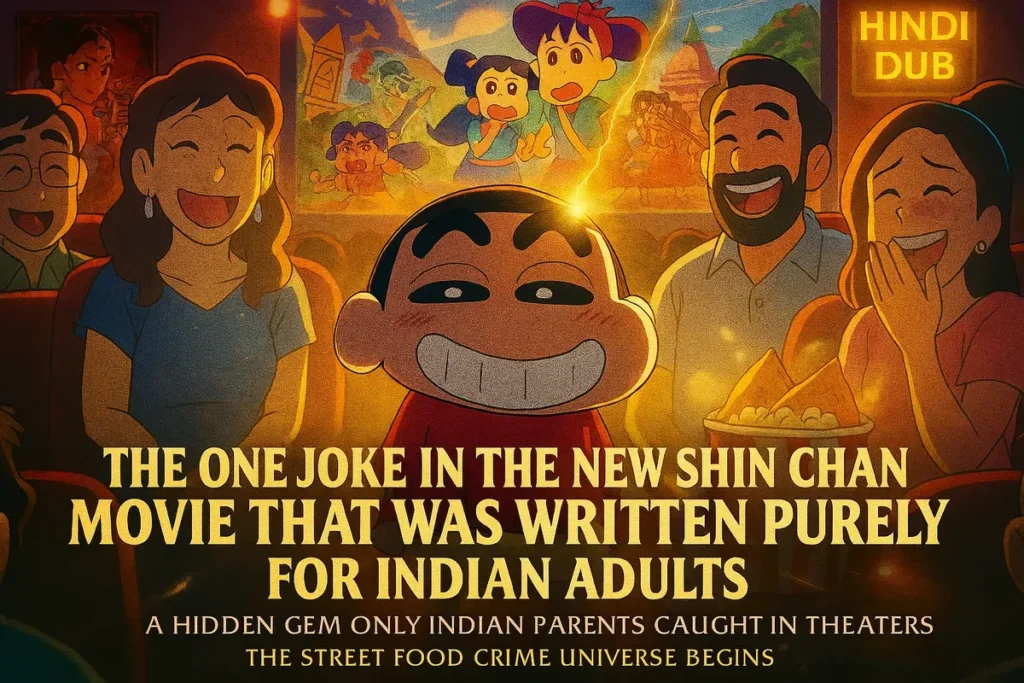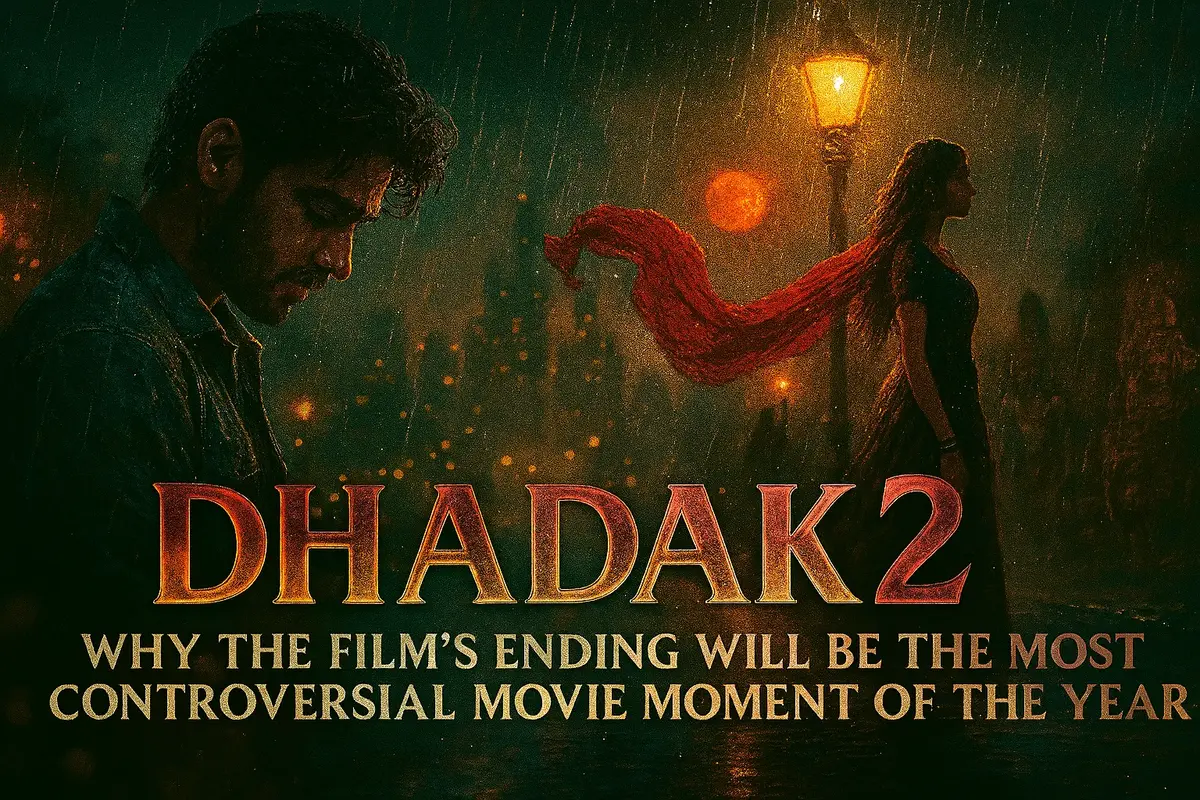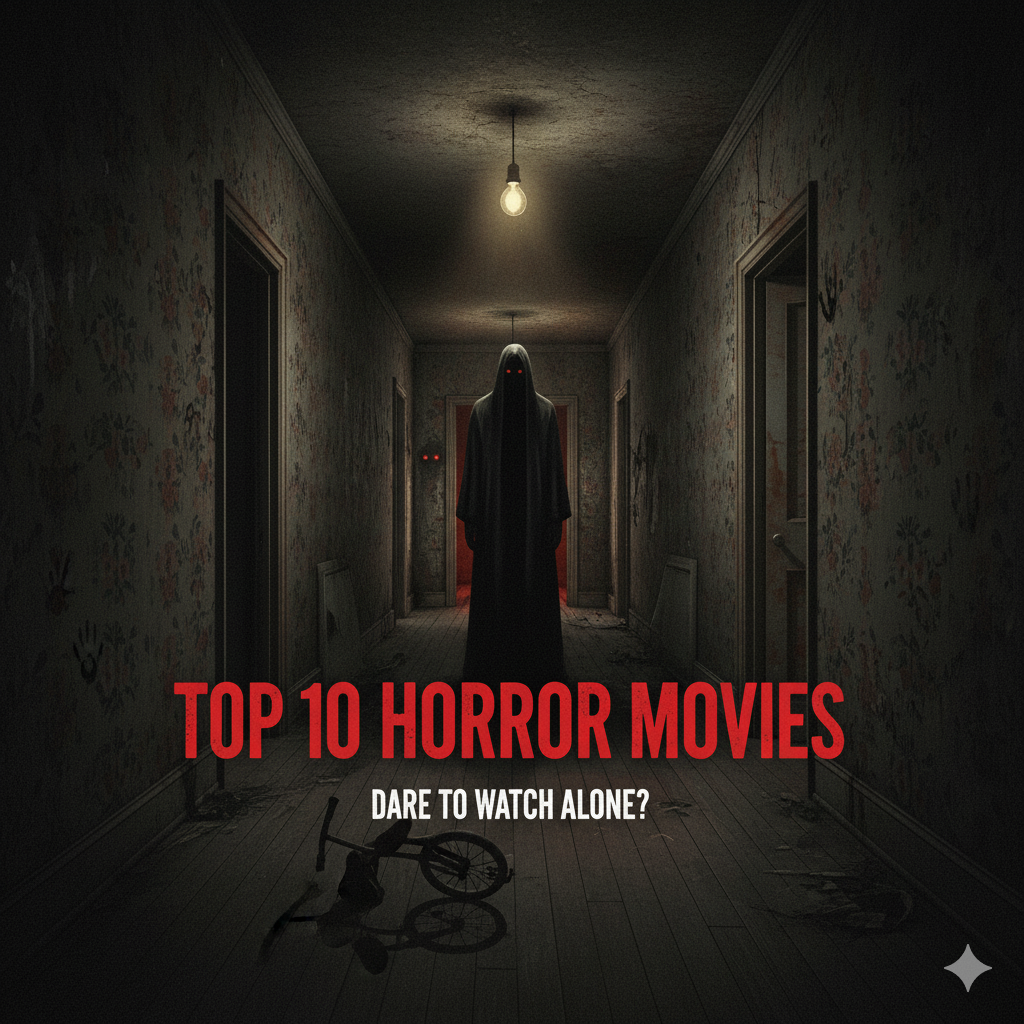
Introduction
Taking your kids to see the new Shin Chan movie, Shin Chan: Action Kamen vs. The Masala Monster, is a familiar joy. You settle in for 90 minutes of Shin Chan’s signature brand of innocent mischief, silly dances, and off-the-wall humor. The kids in the theater roar with laughter at every slapstick moment. But amidst all the chaos, the Hindi dubbing team slipped in a brilliantly clever joke—one that almost certainly flew right over every child’s head but left the parents in the audience with a knowing smirk.
If you were busy handling a popcorn refill, you might have missed it. It was a fleeting, perfectly delivered line that served as a delightful little reward for the generation of Indian adults who grew up watching not just Shin Chan, but also the angry young man of 70s Bollywood cinema.
A Treat for the Parents in the Room
The beauty of Shin Chan’s Hindi dub has always been its ability to infuse a Japanese show with a distinctly Indian flavor. Over the years, the dubbing artists have become masters of this craft, but in the new film, they’ve outdone themselves. They’ve managed to sneak in a reference that is so culturally specific to an older Indian generation that it can only be described as a perfect “adults-only” joke.
The Scene: A Standoff in the Living Room
The moment occurs during a classic standoff between Shin Chan and his perpetually exasperated mother, Mitsy. She has just discovered that Shin Chan has used her expensive new lipstick to draw Action Kamen on the living room wall. Frustrated, Mitsy tells him he is grounded and has to clean up the mess right away. Shin Chan, in a moment of peak defiance, stands his ground.
"Mere Paas Ma Hai... Aur Papa Bhi Hai!"
With a serious expression on his face, Shin Chan puffs out his chest and, in a comically deep voice, declares, “Aaj mere paas building hai, property hai, bank balance hai… par tumhare paas kya hai?” He perfectly mimics the cadence of a classic movie hero.
Mitsy, not missing a beat, is about to retort when Shin Chan cuts her off. He drops the serious tone, flashes a cheeky grin, and says, “Par mere paas Ma hai… aur Papa bhi hai, isliye aap dono yeh saaf kar dena!” (But I have Mom… and Dad too, so you both can clean this!).
The 'Deewar' Connection Only Adults Would Get
For any Indian adult in the audience, this exchange is instantly recognizable. It’s a direct, hilarious subversion of the most iconic dialogue in the history of Indian cinema from the 1975 blockbuster, Deewar. The original scene is a powerful, dramatic confrontation between two brothers on opposite sides of the law, played by Amitabh Bachchan and Shashi Kapoor.
When Bachchan’s character boasts about his material wealth and asks, “What do you have?” Kapoor’s character famously delivers the iconic line: “Mere paas Ma hai” (I have Mom). It’s a line that represents morality, family, and the triumph of love over wealth.
Why the Joke Is So Brilliant
This reference works on multiple levels:
- The Inversion of Tone: It takes one of the most serious, emotionally charged scenes in Bollywood history and puts it in the mouth of a five-year-old who is simply trying to get out of trouble.
- Character-Specific Humor: It perfectly fits Shin Chan’s personality. He often mimics adults without fully understanding the context, and using such a weighty dialogue to avoid cleaning a wall is peak Shin Chan logic.
- A Generational Nod: It’s a joke written purely for the parents and older viewers. It acknowledges that the people who watched the original Shin Chan in the 90s and 2000s are now the parents in the theater, and it gives them a moment of nostalgic humor that is just for them.
More Than Just a Dub
This single line is a testament to the genius of the Indian dubbing team. It shows a deep understanding not just of the source material, but of the audience watching it. It’s a moment that transforms the viewing experience from a simple kids’ movie into a shared comedic event for the entire family, albeit on different levels.
Did You Spot It?
So, as your child was laughing at Shin Chan’s silly voice, you were likely smiling for a completely different reason. It was a clever, well-placed tribute that proves that even in a movie about a five-year-old, there’s always room for a little bit of the angry young man.



